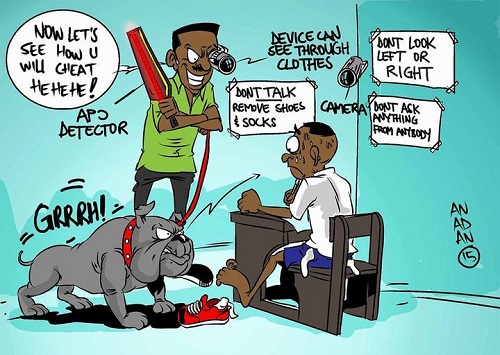
Ensuring fairness and integrity in BECE
As a society, we have a moral obligation to protect our most vulnerable citizens, which includes safeguarding children's rights and well-being. It is disheartening to acknowledge that children face unfair treatment and prejudice based merely on their race, ethnicity, gender, or other qualities.
The Ministry of Education (MoE) is actively working to address the issue of exam leaks in the country by proposing the serialization of exam papers. This method involves using the same set of objective test questions, but they are scrambled so that each question has a unique number. The aim is to reduce cheating in the exams room, and while this is a positive step, we must carefully consider its implications.
However, I disagree with the Honourable Minister of Education, Dr Yaw Osei Adutwum's recommendations, particularly the proposal to have different questions for different regions and separate exam centers or rooms. Such an approach may not effectively prevent exam paper leaks and could lead to new problems, including discrimination.
Discrimination in basic certificate exams is a concern in Ghana due to regional differences. Some areas may receive exam papers of varying difficulty levels, potentially disadvantaging students from specific locations. Furthermore, regional disparities in resources, study materials, educational infrastructure, and teacher quality can also impact students' preparation and exam results.
Instead of implementing measures that may lead to discrimination, I propose the following alternatives to address the issue of examination leakages while upholding fairness:
1. Enhancing security measures: This includes limiting access to examination papers, ensuring proper paper storage and handling, using secure digital platforms for online exams, and adhering to stringent paper delivery standards.
2. Utilizing technology to prevent leaks: Employing technological equipment can play a crucial role in detecting and preventing examination leakages.
3. Strengthening monitoring measures: Implementing surveillance cameras, conducting random checks, and enforcing strict exam material handling norms can enhance the integrity of the examination process.
4. Collaboration with law enforcement: Working with law enforcement to investigate and prosecute individuals involved in examination leaks can serve as a strong deterrent.
5. Involving education stakeholders: Collaboration among schools, examination boards, teachers, parents, and students can foster a unified approach to combatting examination leakage.
To eliminate discrimination in basic certificate exams in Ghana, education authorities must ensure equal opportunities and resources for students from all regions. Measures such as blind grading, where examiners are unaware of students' identities, can help eliminate potential biases. Additionally, establishing an effective feedback and appeals structure for students to express concerns and seek clarity on the examination process can ensure fairness.
Moreover, providing equal access to study materials, textbooks, and preparation aid for all students, regardless of their location or institution, is essential. Improving educational infrastructure in low-income communities will also contribute to eliminating regional disparities and promoting exam fairness.
Remember, eradicating biases requires ongoing effort and a commitment to building an inclusive and equal examination system. Continuous evaluation and improvement are vital to ensure that Basic Education Certificate Examinations are fair and accessible to all students. By collectively working towards this goal, we can protect the rights and well-being of every child in Ghana.
